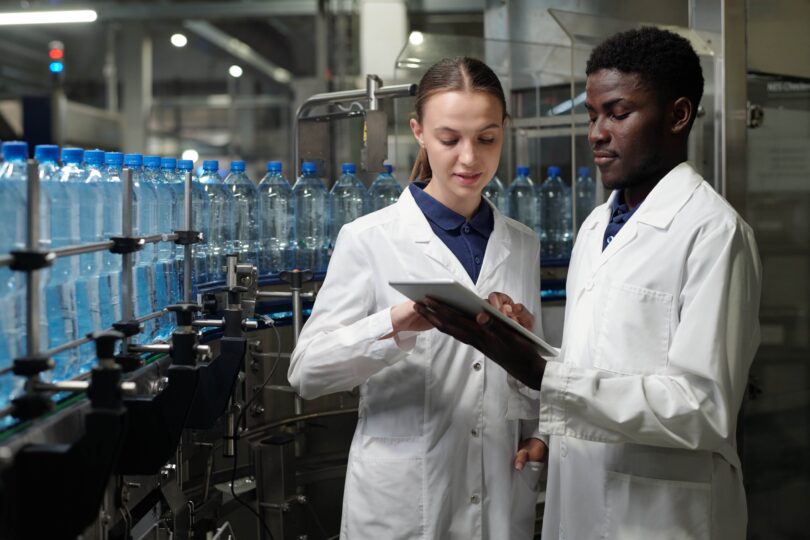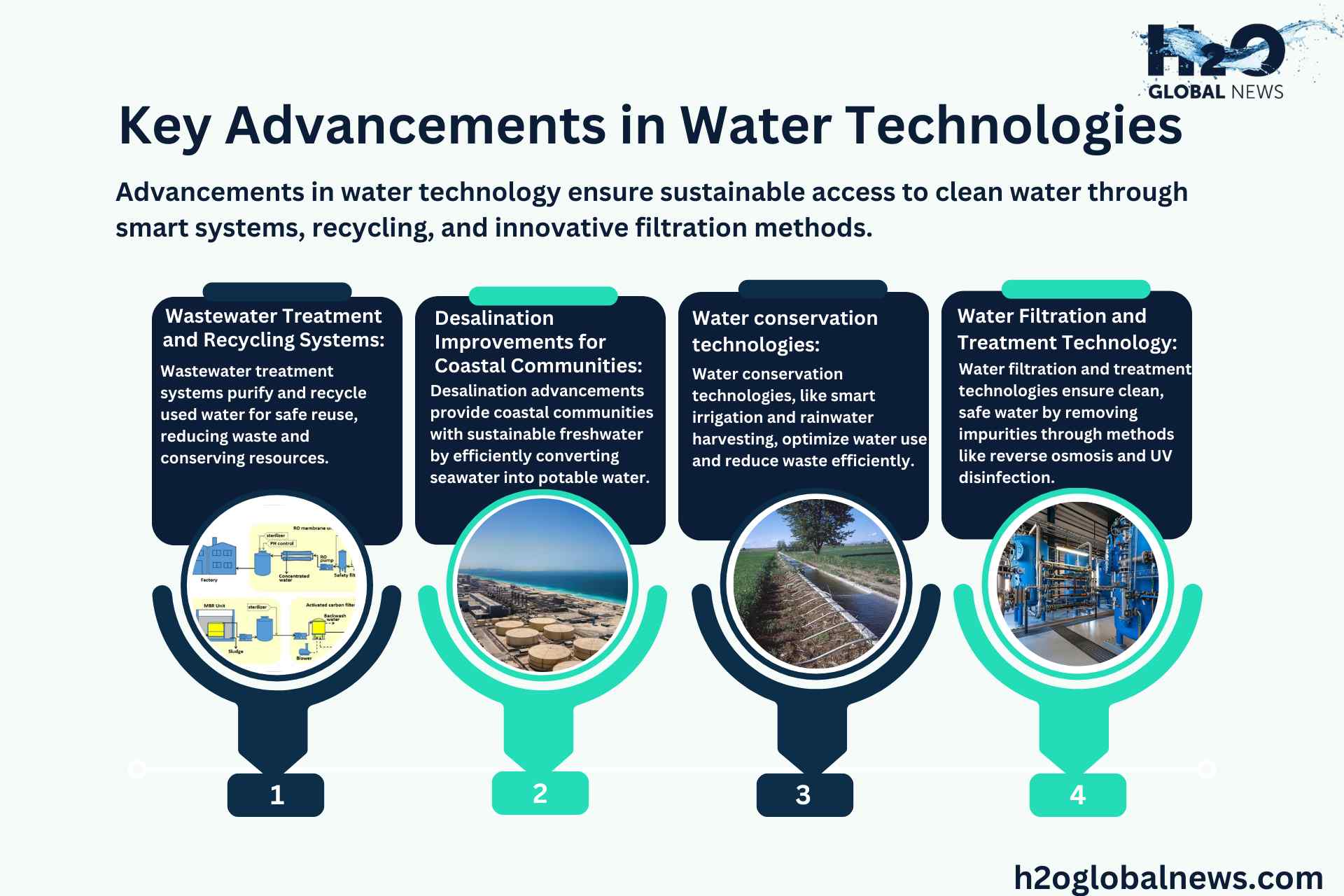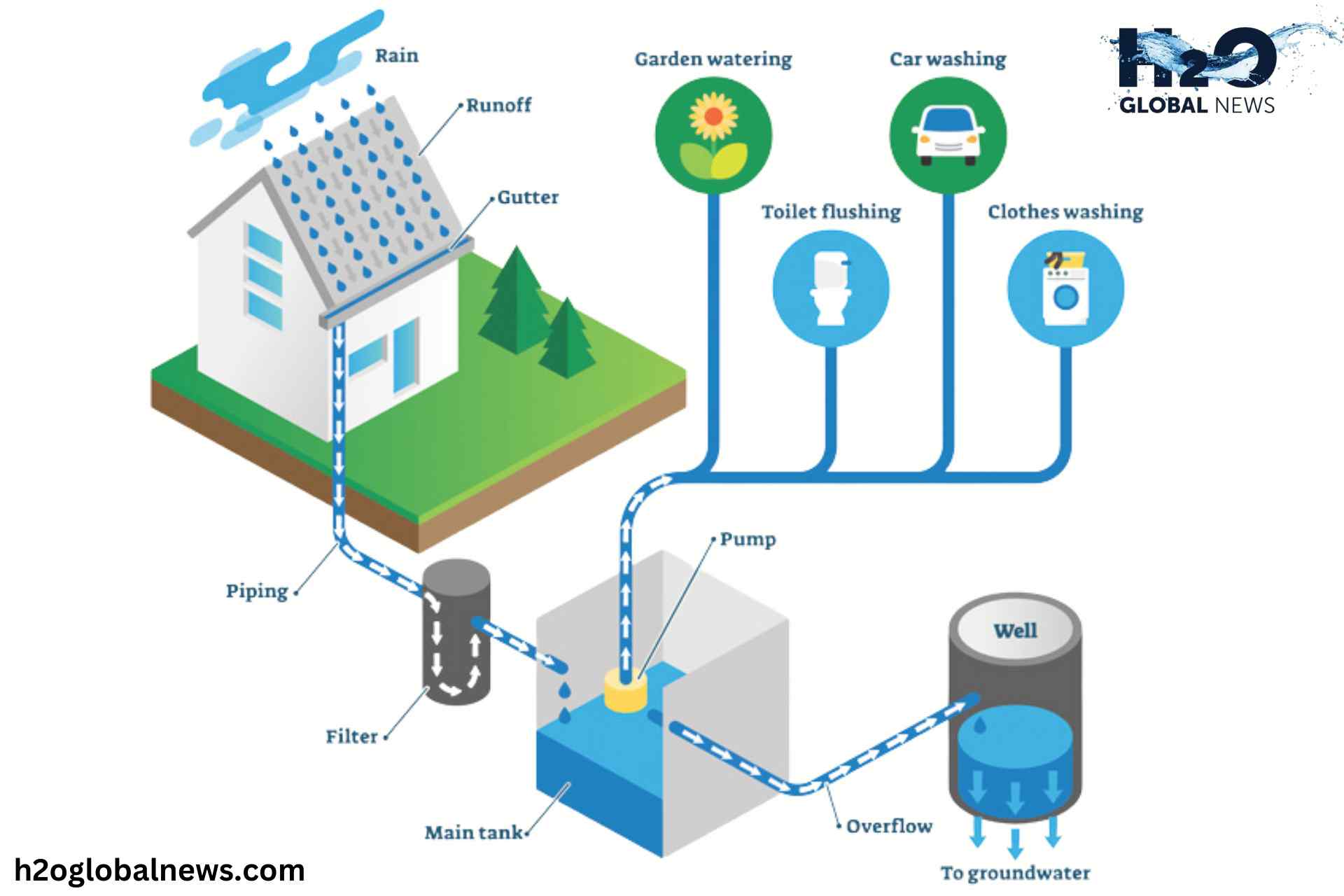Water is essential for life, yet its availability and quality are major global challenges. Enter water technology, a growing field with innovations that promise to tackle these issues head-on. In this blog post, we will explore the latest developments in water technology and the significant impacts they can have on our world. These advancements, from enhancing water conservation to addressing contamination, are key to a more sustainable future.
The Role of Technology in Water Sustainability
Water has an unbreakable link to sustainability. Advances in water technology are critical for developing solutions that fulfill current and future demands while minimizing environmental effects. Water-saving technology is helping to conserve resources in residential, industrial, and agricultural contexts, while modern treatment processes ensure that every drop is safe and efficient.
Key Advancements in Water Technologies
As we look to the future, various new water technologies promise to improve the accessibility and safety of our water supply.
1- Water Filtration and Treatment Technology
- Advanced filtering for Contaminant Removal: Advancements in filtering technology allow for more effective removal of contaminants such as heavy metals, medicines, microplastics, and pathogens. Nanotechnology and reverse osmosis are getting more sophisticated, making it possible to filter water to exceptionally high purity levels, critical for populations with contaminated water supplies.
- Electrochemical Water Treatment: Electrochemical methods are employed in water treatment systems to disinfect and remove hazardous substances. These efficient systems need little energy, which is perfect for decentralized water systems in remote locations.
2- Wastewater Treatment and Recycling Systems
- Innovation in Wastewater Treatment: New technologies transform wastewater into a useful resource. Membrane bioreactors, for example, use microbial organisms to degrade pollutants, allowing wastewater to be recycled safely for industrial or agricultural use. Cities implementing this wastewater treatment technique can conserve fresh water while reducing pollution in natural waterways.
- Water Recycling Systems: Recycling water is important for areas experiencing water constraints. Water recycling systems cleanse wastewater for reuse, reducing the need for freshwater resources. After extensive treatment, purified wastewater is used in sophisticated water technologies for landscaping, agriculture, and even potable water.
3- Water Conservation Technologies
- Smart Irrigation and Leak Detection: In agriculture, smart irrigation systems employ sensors and data analytics to supply precisely the water required, decreasing waste and increasing crop productivity. Smart leak detection systems in cities reduce water loss by swiftly detecting and correcting leaks in municipal infrastructure.
- Water-saving devices: Water-saving technology, such as low-flow showerheads and water-efficient appliances, helps minimize home use. When combined with water conservation technologies, these devices greatly reduce overall water consumption, ensuring that more water is accessible for vital needs.
4- Desalination Improvements for Coastal Communities
- Desalination technology, which removes salt from saltwater, is becoming more energy-efficient, making it a more viable choice for supplying fresh water to coastal communities. Recent improvements aim to reduce the high energy costs involved with desalination by integrating renewable energy and improving reverse osmosis membranes. This pure water technology can provide potable water to millions in areas where freshwater resources are scarce.
Smart Water Management
What is Smart Water Management?
Smart water management involves using digital technologies to monitor and manage water resources more efficiently. This includes using sensors, IoT devices, and data analytics to optimize water usage and distribution.
Examples of Smart Technologies
Smart meters, for instance, allow utilities and consumers to track water usage in real time. Leak detection systems can identify and address leaks before they become major problems. Automated irrigation systems adjust water usage based on weather conditions and soil moisture levels.
Benefits for Communities
Implementing smart water management systems can lead to substantial water savings, reduced costs, and improved resource allocation. Communities can benefit from better water quality, reduced wastage, and enhanced resilience against droughts and other water-related challenges.
Rainwater Harvesting Systems
Importance of Rainwater Harvesting
Rainwater harvesting involves collecting and storing rainwater for later use. It is a simple yet effective way to supplement water supply, especially in areas with unreliable rainfall patterns.
Modern Harvesting Techniques
Modern rainwater harvesting systems incorporate advanced filtration and storage solutions. Rooftop harvesting, for instance, directs rainwater from roofs into storage tanks, which are filtered and purified for various uses.
Community Implementation
Communities around the world have embraced rainwater harvesting as a sustainable practice. In Australia, for example, many households have installed rainwater tanks to reduce their dependence on municipal water supply. This practice has proven beneficial during droughts and water restrictions.
Agricultural Water Technologies
Agricultural water technologies are crucial in optimizing water usage for farming, enhancing crop yields, and promoting sustainable agricultural practices.
Challenges in Agricultural Water Use
Agriculture accounts for about 70% of global freshwater withdrawals. Inefficient water use in agriculture leads to wastage and depletion of water resources, posing a significant challenge to food security.
Technological Solutions
Smart irrigation systems, such as drip and precision irrigation, deliver water directly to the plant roots, minimizing wastage. Soil moisture sensors and weather-based irrigation controllers further optimize water use, ensuring crops receive the right amount of water at the right time.
Benefits for Farmers
These technologies help farmers use water more efficiently, leading to higher crop yields and reduced water costs. They also promote sustainable farming practices, contributing to long-term food security and environmental conservation.
Discover how Water Technology in Agriculture improves water use for a sustainable future.
The Future of Water Treatment and Technology
Optimizing accessibility, sustainability, and efficiency is key to the future of water. With businesses investing in resilient infrastructure, sustainable filtering techniques, and water recycling, the water treatment sector is expanding quickly. Emerging technologies aim to prevent contamination, save resources, and eventually help ensure an ample supply of clean water worldwide.
1- New Developments in Water Filtration Technologies
- Nanomaterials and graphene: Filters based on graphene show promise in removing even the tiniest particles from water. Particularly in places where access to clean water is scarce, these materials can increase the speed and effectiveness of filtering.
- Photocatalytic Water Treatment: Photocatalytic treatment systems use sun energy to initiate chemical reactions that break down water contaminants, lowering the need for chemical disinfectants and producing a more sustainable treatment process.
2- Water Management with IoT and AI
- Integrating AI and IoT (Internet of Things) in water systems makes real-time monitoring and predictive analytics possible, giving utilities and cities the information they need to manage water resources more effectively. Sensors help save water and speed up response times to infrastructure problems by monitoring water levels, spotting leaks, and forecasting usage patterns.
3- Technology for Pure Water in Water-Scarce Areas
- Solar-powered water distillation devices and portable water purification machines are becoming increasingly common options for isolated or water-limited areas. Without substantial infrastructure, these technologies provide communities with an autonomous, dependable way to obtain clean drinking water.
Water Recycling Systems: Complete the Cycle
Water recycling is crucial during rapidly changing climate conditions and water scarcity. By closing the water use loop, new water recycling systems guarantee that wastewater is cleaned and used in local communities. Recycled water is vital to the water supply in Singapore and Israel. This strategy minimizes wastewater flow into rivers and oceans, conserving freshwater supplies and lowering pollutants.
What Is the Future of Water?
Advanced water technology, better infrastructure, and a dedication to sustainable water management are all necessary for the future of water. The technologies above and as-yet-undiscovered advancements will be adopted more widely during the next few decades.
Clean water access will increasingly rely on regional water recycling programs, conservation initiatives, and strong treatment procedures to provide a safe and dependable supply to provide a safe and dependable supply.
Adopting water technologies and prioritizing sustainability can guarantee a water-secure future. In addition to offering potential answers to the world’s water dilemma, these developments also make the earth healthier and international society safer.
Conclusion: Building a Sustainable Future Through Water Technology
Water technology is essential to creating a sustainable future, from preventing pollution to conserving water through efficiency. Governments, businesses, and communities must work together to put these developments into practice and guarantee that everyone has access to clean water. We can solve present and upcoming issues with water accessibility and quality by implementing pure water technology, sophisticated water filtration systems, and efficient water conservation techniques.
The road to a sustainable and water-secure future is attainable if we keep innovating and investing in water technologies.
FAQs
What will happen by 2025 in water?
By 2025, the rising population and higher demand due to climate change could see huge areas facing major water stress. The UN estimates that half of the world’s population could inhabit water-scarce regions, while water quality may be affected by pollution and overuse, threatening agriculture, health and ecosystems. By 2025, two-thirds of the world’s population may face water shortages.
What is day zero?
Day Zero is the projected day when a city or region runs out of sufficient water for its population, forcing authorities to shut off regular water distribution. It highlights severe water shortages caused by drought, overconsumption, or poor water management. Cape Town, South Africa, famously faced a Day Zero crisis in 2018.
What if there is no water?
Without water, there would be no life, at least none as we know it. Water is indispensable for human, animal, and plant survival. It would cause catastrophic public health crises, famine, economic collapse, environmental ruin and forced migration. Drinking, agriculture, industry and ecosystems all need clean water to survive.









